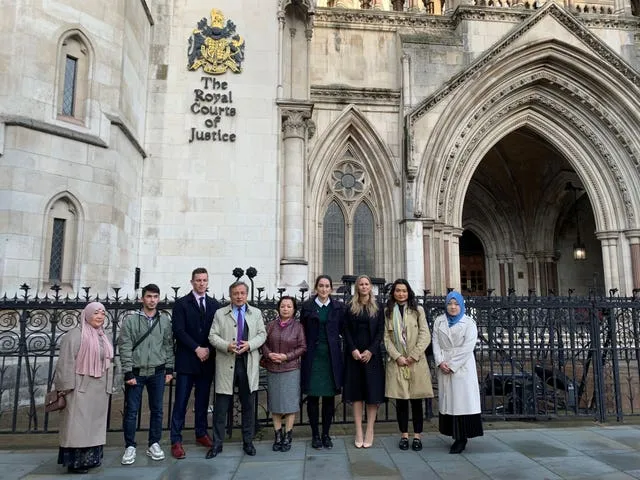Court determines that NCA’s omission to look into imports connected to forced Uyghur labor is illegal.
Decision could result in retailers being prosecuted if they import goods made through forced labour, campaigners say
The UK National Crime Agency’s decision not to launch an investigation into the importation of cotton products manufactured by forced labour in China’s Xinjiang province was unlawful, the court of appeal has found.
Global Legal Action Network (GLAN) and the World Uyghur Congress (WUC), which brought the action, said Thursday’s decision was a landmark win that could lead to high street retailers being prosecuted under the Proceeds of Crime Act (Poca) if they import goods made through forced labour.
Three court of appeal judges, including the lady chief justice, Lady Carr, overturned the high court’s decision, which they said created concern, raised by third-party intervener Spotlight on Corruption, that it was “endorsing the proposition that there is a need to establish criminal conduct or criminal property before an investigation under Poca can begin”. The court’s judgment means that the NCA will have to reconsider its decision not to carry out an investigation.
Dearbhla Minogue, a senior lawyer with GLAN, said: “This litigation has been critical in recognising the mass atrocities being committed against Uyghur and other Turkic Muslim people by the Chinese government, and holding to account those complicit in, or profiting from, these crimes.
“There is an abundance of evidence that UK companies are importing forced labour cotton from China. Following this ruling, we expect the National Crime Agency will investigate and prosecute where appropriate to prevent forced labour cotton from flooding the UK market.”
Echoing the high court’s findings, the appeal judges said it was accepted that there was “a diverse, substantial, and growing body of evidence” that large-scale human rights abuses were occurring in the Xinjiang Uyghur Autonomous Region. Xinjiang is allegedly home to 380 internment camps used to detain Uyghurs and people from other Muslim minorities. GLAN and WUC say that 85% of Chinese cotton is grown in the region, the vast majority under conditions of detention and forced labour.
Rahima Mahmut, the UK director of the WUC, called the court of appeal’s decision “a monumental victory and a moral triumph” and urged the government to implement tougher legislation.
“For far too long, there has been no international court to hold China accountable,” she said. “The UK government’s lack of action forced us to pursue this case, and it is incredibly heartening to see the judges’ findings support our arguments. This win represents a measure of justice for those Uyghurs and other Turkic people who have been tortured and subjected to slave labour there.”
The court of appeal judgment said the NCA’s decision letter “would convey to the reasonable reader that the NCA proceeded on the basis that it was necessary to be able to identify specific criminal property and criminal conduct before there can be a ‘proper basis’ for a Poca investigation, whether criminal or civil, and moreover that the provision of ‘adequate consideration’ [market value] anywhere in the supply chain would prevent any goods imported into the UK from being identified as criminal property or recoverable property”.













